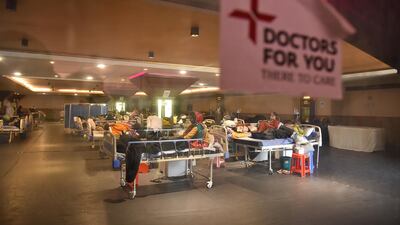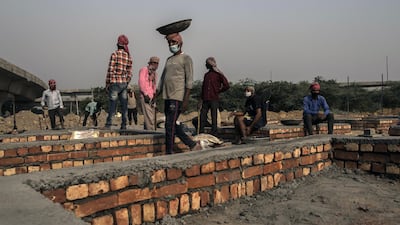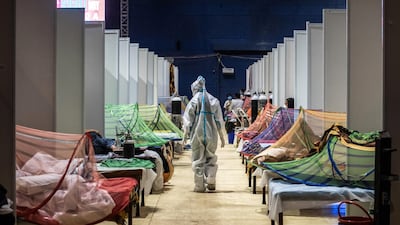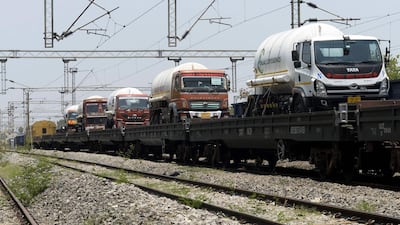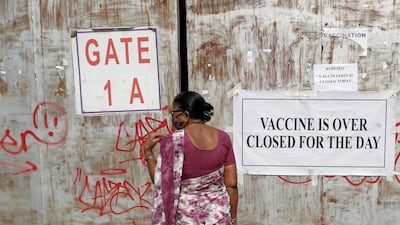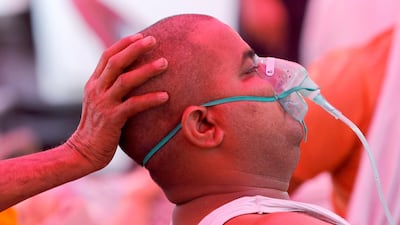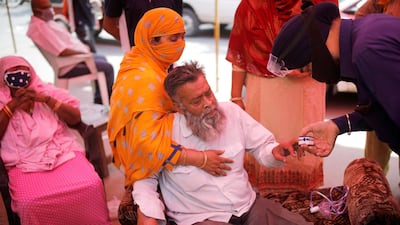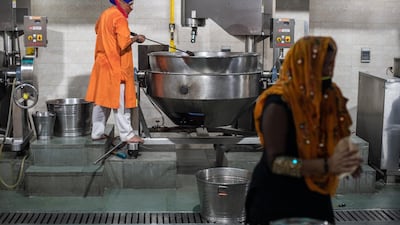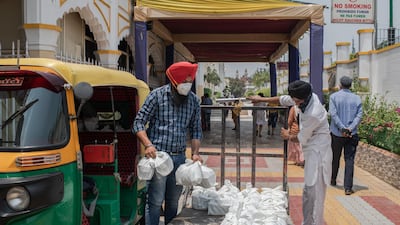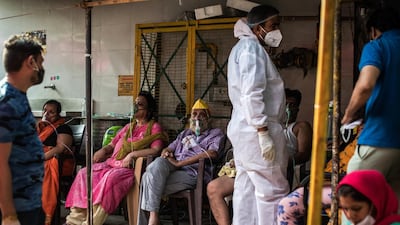India reported more than 300,000 new coronavirus cases on Monday for the twelfth day straight, taking its overall caseload to just shy of 20 million. Deaths rose by 3,417.
The nation’s total coronavirus infections stand at 19.93 million, with 368,147 new cases over the past 24 hours. Total fatalities reached 218,959, according to its health ministry.
Medical experts say real numbers across the country of 1.38 billion could be five to 10 times higher.
But the health ministry offered a glimmer of hope, reporting that positive cases relative to the number of tests conducted fell on Monday for the first time since at least April 15.
India's cases may peak from May 3 to 5 – according to a mathematical model from scientists advising the government – a few days earlier than estimated, as the virus spread faster than expected.
In Delhi, where lockdown has been extended by a week, several hospital authorities sought court intervention over oxygen supplies.
The New Delhi High Court said it would start punishing government officials if supplies of oxygen allocated to hospitals were not delivered.
India opened its vaccination campaign to people aged 18 to 44 on Saturday.
The nation is the world’s biggest producer of vaccines, but even the ongoing effort to inoculate people above 45 is stuttering. Since January, 10 per cent of Indians have received one dose, but only about 1.5 per cent have received both.
Pfizer is in discussions with the Indian government, seeking an "expedited approval pathway" for its vaccine. It also announced a donation of medicines worth more than $70 million.
"Unfortunately, our vaccine is not registered in India, although our application was submitted months ago," CEO Albert Bourla said on LinkedIn.
The severity of the crisis has prompted a number of countries to introduce travel bans and restrictions for citizens traveling to, or returning from India.
The Philippines government said on Monday that it would extend a ban on entry for Indian citizens, while Australia defended its decision to penalise its own citizens entering the country within two weeks of being in India.
The Australian government said it had "strong, clear and absolute" belief the move was legal.

Greg Hunt, Australia's minister for health, pointed to the alarming surge of coronavirus cases in India and the pressure on Australia's health system as reasons to pause travel until May 15. Australia, which has largely contained the coronavirus, closed its borders to non-citizens in March 2020.
"It's a high-risk situation in India," Mr Hunt said.
The Australian Human Rights Commission lambasted the decision, urging lawmakers to immediately review the restrictions. It will approach the government directly with its concerns, it said.
Returning residents and citizens must undergo a mandatory two-week hotel quarantine at their own expense. Australia has seen 22,245 cases of community transmission and 910 deaths since the start of the pandemic.
